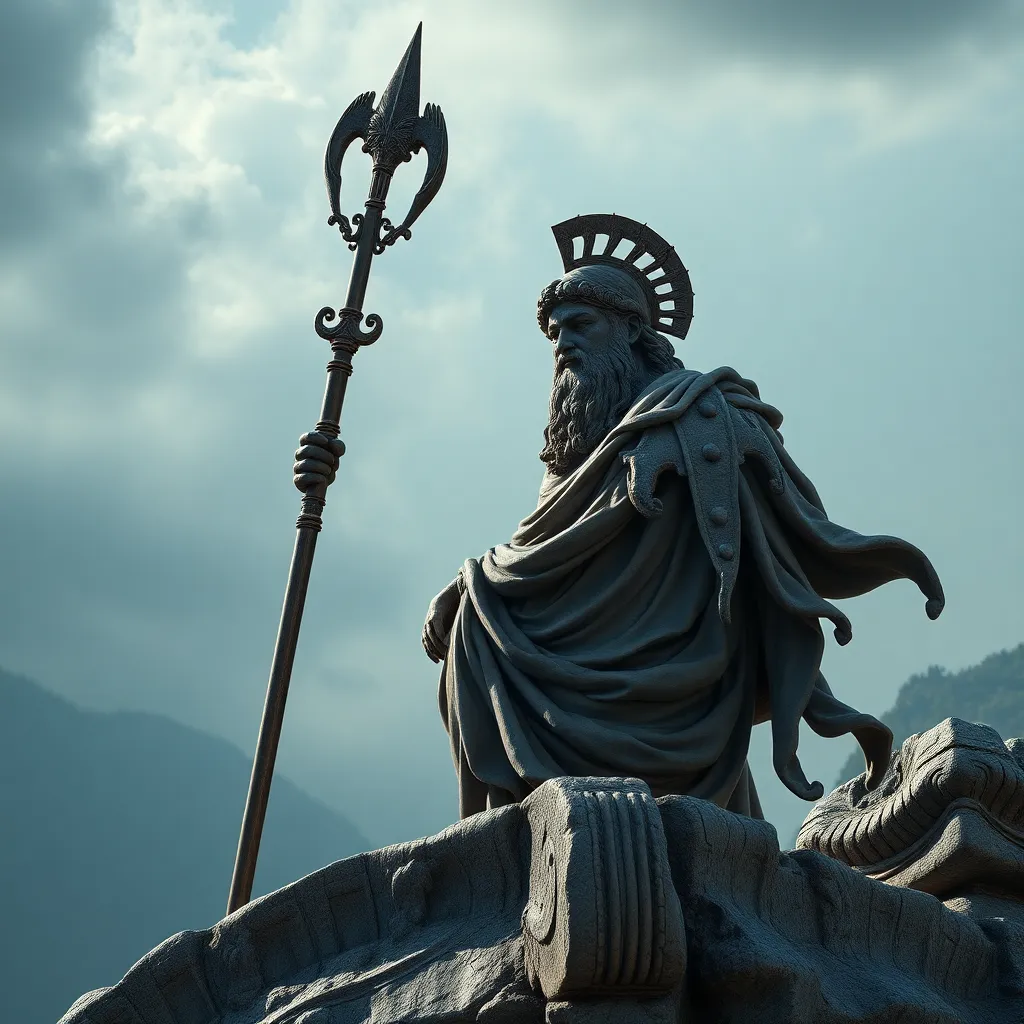The Legacy of Perseus in Contemporary Storytelling
I. Introduction
Perseus, one of the most celebrated heroes in Greek mythology, represents the quintessential archetype of bravery, skill, and destiny. His adventures, which include slaying the Gorgon Medusa and rescuing Andromeda, have solidified his status as a legendary figure whose stories have transcended time. As a cultural archetype, Perseus embodies the heroic journey, inspiring countless narratives across various forms of media.
This article aims to explore the profound influence of Perseus on modern storytelling, examining how his myth has been reinterpreted and reimagined in literature, film, and contemporary culture.
II. The Myth of Perseus: A Brief Recap
The life of Perseus is marked by extraordinary events that highlight his heroism and the divine forces at play. Key events include:
- His birth as the son of Zeus and Danaë, conceived in a golden shower.
- The quest to obtain the head of Medusa, a Gorgon whose gaze could turn men to stone.
- His rescue of Andromeda from a sea monster as a result of his bravery.
Major themes in Perseus’s myth include:
- Heroism: Perseus exemplifies the traits of a hero through his courage and determination.
- Destiny: His life is shaped by prophecies and divine interventions that guide his path.
- Courage: Perseus faces seemingly insurmountable challenges, demonstrating unwavering bravery.
Divine intervention plays a crucial role in his story, as gods like Athena and Hermes provide him with guidance and magical tools, showcasing the interplay between human effort and divine assistance.
III. Archetypal Hero: Perseus as a Model
Archetypal heroes share several defining characteristics, including:
- A call to adventure that propels them into action.
- Facing trials and adversaries that test their mettle.
- A transformation that leads to personal growth and understanding.
Perseus exemplifies these traits as he embarks on his quests, confronts formidable foes, and ultimately matures into a wise leader. His experiences have significantly influenced the development of hero characters in contemporary tales, laying the groundwork for modern interpretations of heroism.
IV. Perseus in Literature and Film
The myth of Perseus has been retold in various literary forms, from ancient Greek tragedies to modern novels. Notable retellings include:
- Classical plays such as Aeschylus’s “The Suppliants” and Euripides’s “Andromeda.”
- Modern adaptations in novels that explore the themes of heroism and identity.
In film and television, adaptations like “Clash of the Titans” and the “Percy Jackson & The Olympians” series have introduced Perseus to new audiences. These visual storytelling formats have redefined the perception of the myth through special effects and modern narratives, making the ancient hero more accessible and relatable.
V. Themes of Masculinity and Heroism
The story of Perseus provides a rich landscape for exploring themes of masculinity. His character embodies traditional masculine ideals, including:
- Strength and physical prowess.
- Bravery in the face of danger.
- Protectiveness towards loved ones, such as Andromeda.
However, contemporary interpretations often reflect evolving societal views on heroism and masculinity. Modern male protagonists may blend traditional characteristics with vulnerability, emotional depth, and moral complexity, reflecting current understandings of what it means to be a hero.
VI. Feminist Perspectives on Perseus
While Perseus is celebrated as a hero, the women in his myth, such as Medusa and Andromeda, also play pivotal roles. Their stories warrant a reevaluation, particularly from feminist perspectives:
- Medusa: Often viewed as a victim of divine punishment, her narrative challenges traditional interpretations of female monstrosity.
- Andromeda: Represented as both a damsel in distress and a strong figure who ultimately becomes Perseus’s wife.
Contemporary adaptations frequently reshape these female characters, granting them agency and depth, thereby altering the legacy of Perseus and highlighting the importance of female perspectives in the myth.
VII. The Cultural Impact of Perseus
Perseus has left an indelible mark on art and popular culture, serving as a symbol of heroism and adventure. His stories have influenced:
- Visual art, from classical sculptures to modern paintings, often depicting his battles and triumphs.
- Video games where players embody heroic figures, drawing from the archetype of Perseus.
- Interactive media that explores mythological themes, allowing audiences to engage with the narrative in innovative ways.
Perseus’s legacy continues to shape collective mythology and folklore, inspiring new generations to explore his stories and their themes.
VIII. Conclusion
The enduring influence of Perseus on storytelling underscores the relevance of ancient myths in contemporary narratives. His journey not only reflects timeless themes of heroism, courage, and destiny but also invites ongoing exploration of masculinity, femininity, and the complexities of the human experience.
As society evolves, so too will the representation of Perseus in storytelling, paving the way for fresh interpretations that resonate with modern audiences while honoring the rich tapestry of his mythological legacy.




